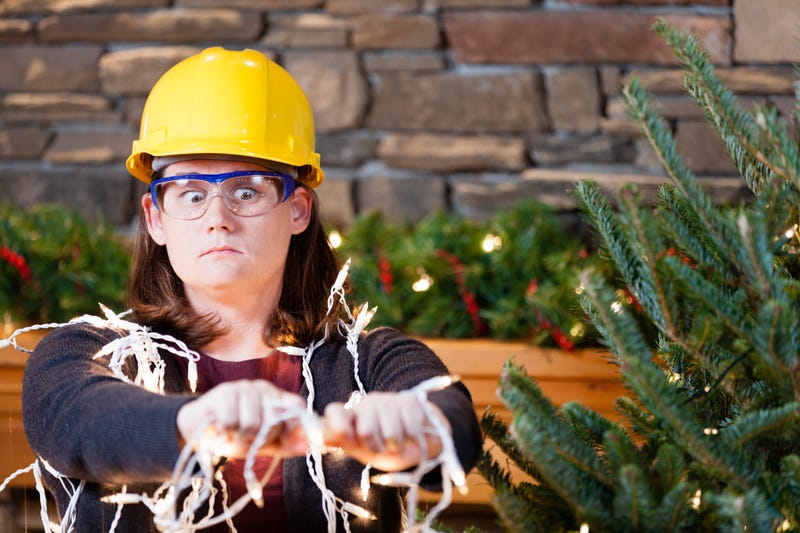
Preparing for the hazards of winter is a real thing. Like it or not, winter is coming and with it comes the risk of injury or worse. It might be funny when it's Clark Griswold, but it's not so funny when it's real life and disaster strikes your holiday gathering.
All this week, the Minnesota Department of Public Safety is sharing information about everything explaining the difference between a winter storm warnings and watches, to avoiding holiday fires.
"You know, we'll see a lot of burn injuries, and we'll also see a lot of house fires," says Charlie Sloane who is Deputy Chief of Operations at Hennepin EMS. "Especially around Thanksgiving, people trying to deep fry a turkey in their garage and didn't prepare it properly. We'll definitely see that stuff around the holidays."
He says they also respond to a number of falls.
"We'll see people slipping and falling and they might have a broken ankle, a broken hip, a broken wrist," says Sloane. "We see a lot of orthopedic injuries."
Some of the other topics they're educationg the public on are how to avoid holiday cooking fires and what to put in a winter survival kit in your car. Sloane adds that when there is an emergency, do your best to help.
"So, when the snow starts flying just make sure that your sidewalks and driveways are shoveled. That will help EMS get to a house easier in an emergency," he says.
Space heaters also need a watchful eye. Turn them off when you leave home or go to bed. Make sure the cords are in good shape and check the cord for overheating or any fraying.
Any heating appliance with an open flame needs to be vented to the outside to avoid carbon monoxide poisoning. Always follow the manufacturers' instructions and recommendations.
Of course the idea is to prepare, be safe, and perhaps avoid catastrophes during the holiday season.
Before you travel, check current road conditions and be sure to tell someone where you're traveling and what route you're taking.
The Department of Public Safety also recommends letting your family know your travel plans, and about what to do if a blizzard hits and you become separated. Do you have enough supplies on hand to stay warm and safe for an extended time without electricity, heat or access to stores or services?
Build an emergency kit for your home and a winter survival kit for your vehicle including:
Non-perishable food
Bottled water
Flashlight and extra batteries
Extra blankets
A battery-operated radio with fresh batteries
Extra essential medicines
Cell phone charger
Shovel
“Plan ahead. That simple step could save your life," HSEM Director Kristi Rollwagen said. “With the increasing frequency of freezing drizzle and icy conditions, knowing the conditions when you're venturing out by foot is just as important as when you're venturing out in a vehicle."
